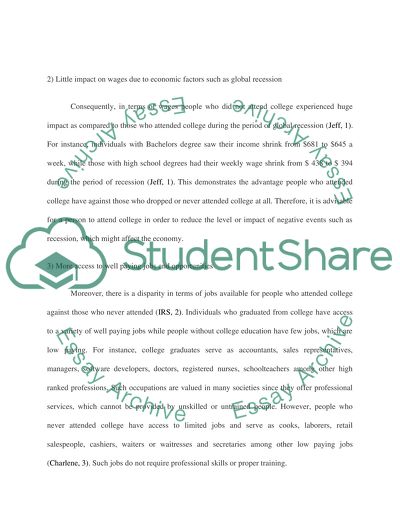Cite this document
(“College Education: Reasons For and Against Attending College Essay”, n.d.)
College Education: Reasons For and Against Attending College Essay. Retrieved from https://studentshare.org/education/1474916-persuasive-essay-on-the-benefits-of-attending
College Education: Reasons For and Against Attending College Essay. Retrieved from https://studentshare.org/education/1474916-persuasive-essay-on-the-benefits-of-attending
(College Education: Reasons For and Against Attending College Essay)
College Education: Reasons For and Against Attending College Essay. https://studentshare.org/education/1474916-persuasive-essay-on-the-benefits-of-attending.
College Education: Reasons For and Against Attending College Essay. https://studentshare.org/education/1474916-persuasive-essay-on-the-benefits-of-attending.
“College Education: Reasons For and Against Attending College Essay”, n.d. https://studentshare.org/education/1474916-persuasive-essay-on-the-benefits-of-attending.


